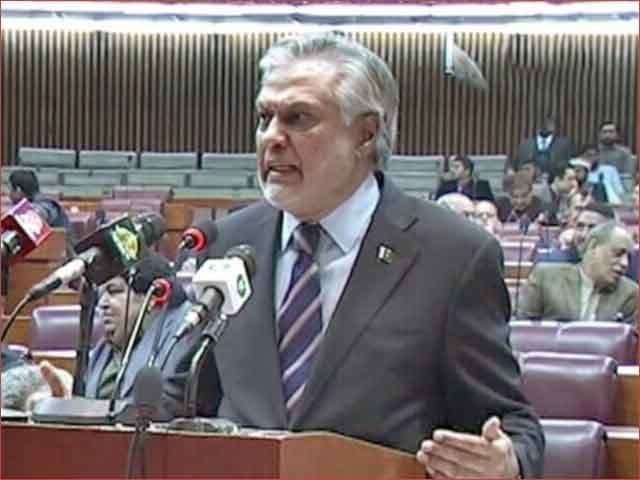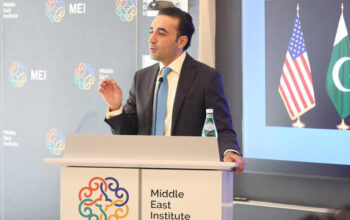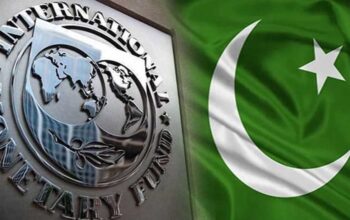By Staff Reporter
ISLAMABAD: The government on Wednesday tabled a money bill in parliament to raise Rs170 billion in taxes by June this year as part of conditions by the International Monetary Fund (IMF) to revive a stalled $6.5 billion loan program.
Finance Minister Ishaq Dar presented the Finance (Supplementary) Bill, 2023, in the National Assembly — the lower house — empowered to legislate on money matters. Later, the bill was presented in the Senate.
The Federal Board of Revenue (FBR) issued an order after the cabinet meeting to enhance a federal excise duty on locally manufactured cigarettes, which would generate up to Rs 60 billion in taxes on tobacco products, while the Finance Division issued a notification increasing the general sales tax by one percent to 18 percent to raise another Rs 55 billion.
The remaining amount of Rs 55 billion to fulfil Rs 170 billion IMF demand was being collected through an increase in excise duty on airline tickets, and sugary drinks as well as an increase in withholding tax rates through the Finance (Supplementary) Bill 2023.
Tax on luxury items has also been increased from 17 percent to 25 percent.
The bill has also proposed that the FED on business and first-class air tickets be increased by up to 50 percent and a 10 percent withholding adjustable advance income tax on marriages in wedding halls. It has also called for the FED on cement to be increased from Rs1.5 per kilogram to Rs2 per kilogram.
The government has already jacked up tariffs on electricity and gas to meet the international lender’s conditions.
Dar said the government was not levying any additional taxes on essential goods such as wheat, rice, meat, milk, and eggs. “We are trying to protect the common people and ensuring that there would be a minimum burden on them.”
The minister said the legislation would enable the country to collect additional taxes of Rs170 billion to meet one of the IMF’s demands.
The government was forced to bring legislation through the parliament after President Arif Alvi on Tuesday refused to promulgate an ordinance to raise the new taxes and “advised” the finance minister to take parliament into confidence over the new taxes.
The cabinet met after the president’s “refusal” and approved the bill later in the evening after a debate. It also summoned the parliament to meet in an emergency session and pass the new bill.
The finance bill would become law after it passes from the National Assembly and is sent to the president for approval, which the government expects would be done by Thursday.
Securing an IMF deal is crucial for Pakistan as it needs more aid to avert a default as the country’s foreign currency reserves have fallen to less than $3 billion.
The IMF and Pakistan resume talks virtually on Monday to revive a stalled bailout program after failing to reach a deal during the lender’s 10 days visit last week.
The delay in the IMF deal has further weakened the country’s economy, already in turmoil with the rupee shedding more than a quarter of its value against the U.S. dollar, fuel prices rising by almost a fifth, and inflation at a multi-decade high of 27 percent.
Copyright © 2021 Independent Pakistan | All rights reserved




